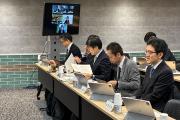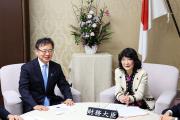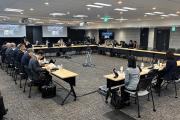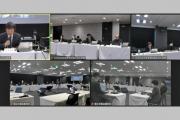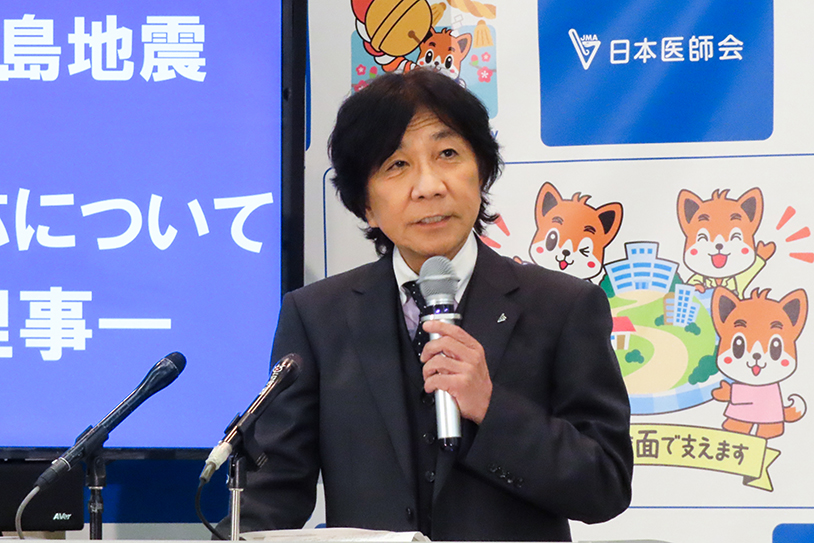
Around 80-90% of clinics in the northern part of the Noto Peninsula in Ishikawa Prefecture, the area hit hardest by the New Year’s earthquake, are “not functioning,” an official of the Japan Medical Association (JMA) said on January 10.
Having been in the disaster area recently, Hidekazu Hosokawa, a JMA executive board member in charge of emergency disaster medicine, explained the local situation at a press conference. He said that the JMA plans to support clinics through the activities of Japan Medical Association Teams (JMATs).
Between January 5 and 7, Dr Hosokawa visited Nanao, Shika, Anamizu, and other municipalities in Ishikawa Prefecture as a member of a JMAT advance team. It was difficult to get around due to traffic jams, damaged roads, and snowfall, and cell phones could not be used, he said.
“The inability to access or contact the northern part of the peninsula leaves a completely different impression from previous disasters such as the Great East Japan Earthquake,” Dr Hosokawa said.
Clinics are not functioning in the northern part of the peninsula due mainly to disrupted water supplies, power outages, and the fact that doctors who returned to the southern part of the prefecture for the New Year’s holiday have been unable to return to their clinics, Dr Hosokawa reported. The full extent of the damage to clinics in the northern region is still unknown, he said, while noting the doctor’s group will consider how JMATs can work with and assist clinics.
He also touched on measures to control the outbreak and spread of infectious diseases at evacuation centers. Hygiene issues are a major concern amid problems like disrupted water supplies and the inability to use toilets. “I'm worried that infectious diseases will spread even further,” he said.
Dr Hosokawa cited the examination of dead bodies as another challenge. Doctors from the Japanese Society of Legal Medicine are currently responding to this at the request of the National Police Agency. With the collaboration of the society, Dr Hosokawa said he expects these doctors to work as part of JMATs.
He also reported the status of JMAT activities in the disaster area. To date, a total of 26 teams have been dispatched. As of January 10, 19 were active, mainly in Nanao, Shika, and Anamizu.
The plan is to increase the number to about 30 teams per day. The JMA plans to dispatch a logistics team as well, Dr Hosokawa said.
“Medical and health needs in the disaster area are expected to increase going forward. Medical associations throughout the country will cooperate with concerned organizations to engage in JMAT activities,” he stressed.






